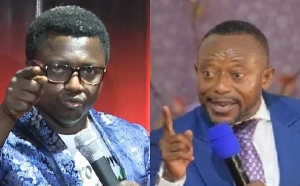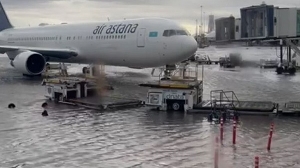- Home - Sports
- Soccer Portal
- Archived Sports News
- Sports Videos | TV
- Year In Review
- Sports Photos
- Sports Headlines
- Boxing
- Athletics
- Basketball
- Bodybuilding
- Cricket
- Golf
- Handball
- Hockey
- Martial Arts
- Tennis
- Volleyball
- Other Sports

General News of Friday, 19 June 2020
Source: ghanaiantimes.com.gh
10,000 schools to benefit from $219m education improvement projects
President Nana Addo Dankwa Akufo-Addo has launched the Ghana Accountability and Learning Outcomes Project (GALOP) to help improve the standards and quality of education in low-performing basic schools across the country.
The project, which was launched at the Jubilee House in Accra yesterday with the support of the World Bank, is expected to improve the quality of education in 10,000 schools across the country.
Under GALOP, government will invest US$219 million on a comprehensive set of interventions that addresses constraints from teaching to learning in basic schools.
President Akufo-Addo said the project will ensure that teachers in the early grades are given the necessary support to continue learning in line with the new curriculum introduced by the government.
In addition, he said schools will receive teaching and learning materials, heads of schools will be trained on improved school management techniques, and supervision and assessment systems will be strengthened.
“Ten thousand low-performing basic schools, across the country, have already been selected to benefit from the Project, and I am confident that the implementation of GALOP would help drive standards and quality in these schools,” he said.
President Akufo-Addo observed that in spite of the numerous steps taken by his administration over the last three and half years to improve basic education in the country, a lot more work needs to be done.
“We must address the problem of low learning outcomes that reflect in the performance of some of our children at the Early Grade Reading Assessment (EGRA), Early Grade Mathematics Assessment (EGMA), and Basic Education Certificate Examination (BECE),” he said
The President said government has implemented significant reforms to improve access, quality of education, infrastructure, teacher training and professionalisation, curriculum development, school inspection, and technical and vocational education and training.
Through the Free Senior High School (SHS) policy, President Akufo-Addo noted that 1.2 million Ghanaian children, the largest in the history of the country, are now in the country’s education ecosystem, 400,000 of whom would otherwise have been excluded.
“Over the last three and a half years, we have done a significant amount of work to boost education at the primary school level. In September 2017, we introduced a new curriculum for kindergarten to primary `school that reflects the realities of our aspirations. Under this administration, we have increased the capitation grant by 120 per cent from GH¢4.50 per child to GH¢10.00. We continue to invest in infrastructure, and in the supply of teaching and learning materials for our children,” he said.
The Minister of Education, Mathew Opoku Prempeh, said the government considers education as the shortest distance to migrate from poverty to prosperity and will be made available to all.
“As a country, we have had several challenges with quality learning outcomes reflecting in our poor performance in our early grade reading assessment, early grade mathematics assessment, programme for international students assessment and, with the West Africa Students Examinations, the results have not been very good,” he said.
The Education Minister said the government has introduced several measures to reform and improve the quality of education and indicated the GALOP will be one of the largest investments in the basic school sector to further help improve the quality of education.











